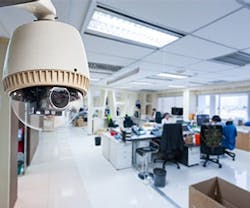Wiretapping. Eavesdropping. Spying. No business or school wants to be accused of violating the privacy rights of occupants when using audio surveillance. Fortunately, you can eliminate any accusations of illegal monitoring by following federal and state law.
Section 18 of U.S. Code 2511 provides a federal precedent that applies to audio surveillance: capturing wire, oral or electronic communication is prohibited unless consent has been secured.
According to the Code, “It shall not be unlawful under this chapter for a person not acting under color of law to intercept a wire, oral or electronic communication where such person is a party to the communication or where one of the parties to the communication has given prior consent to such interception unless such communication is intercepted for the purpose of committing any criminal or tortious act in violation of the Constitution or laws of the United States or of any State.”
While many states have adopted the statute’s language, others have gone a step further and require all-party consent.
Sync Surveillance with Sound
Learn about options for audio monitoring: microphones, analytics, and video intercoms. Read More>>
meaning every individual present must give permission to have communications monitored (see map below). But don’t view this as an onerous mandate. You already gain implied consent from occupants when you post a sign that there is video surveillance; simply include a posting that says audio is being monitored and you’re in the legal clear. Because you have done your due diligence and notified occupants of these practices, your building no longer carries an expectation for privacy like their home does.
“Manage the expectation of privacy by informing occupants openly and repeatedly,” says Richard Brent, CEO of Louroe Electronics. “In addition to signage, reiterate your audio monitoring practices in employee handbooks and tenant leases.”
About the Author
Jennie Morton
A former BUILDINGS editor, Jennie Morton is a freelance writer specializing in commercial architecture, IoT and proptech.
